Coronavirus: Should all Australians be wearing face masks?
Donald Trump has finally been seen in public wearing one. So has Boris Johnson. But Scott Morrison hasn’t yet.
So, can face masks really make the difference between catching coronavirus and being protected from it, or are non-hospital grade masks a waste of time?
This is everything you need to know about how effective face masks are – and how to wear them properly.
Should I wear a face mask?
If you’re in an area where there is community transmission, or physical distancing isn’t possible, then yes, definitely.
“The use of masks is part of a comprehensive package of the prevention and control measures that can limit the spread of certain respiratory viral diseases, including COVID-19,” according to the World Health Organisation.
On Sunday, Premier Daniel Andrews announced it will be a requirement in Victoria, if you live in Metropolitan Melbourne or Mitchell Shire, to wear one.
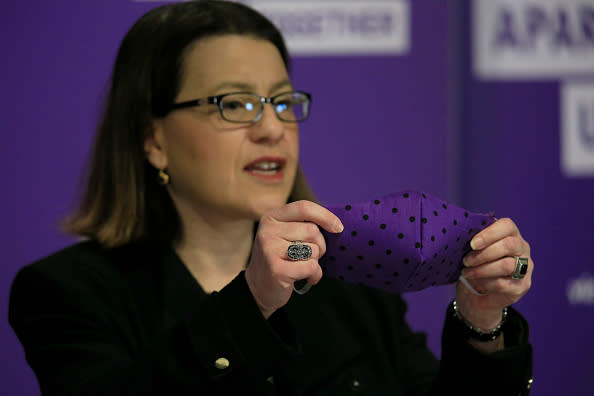
Are face masks effective in preventing the spread of coronavirus?
Yes.
"The evidence on masks is now universally accepted,” Associate Professor in Epidemiology at La Trobe University Hassan Vally said.
“We know that if worn in the community they protect others from getting infected if the person wearing one is ill. And they also reduce the risk of being infected by another person if you wear one and are not ill.”
Should I wear a mask if I’m not in a high-risk area?
The government advice is that you should wear a mask if you are in an area with community transmission, such as parts of Victoria, and physical distancing is not possible, such as on public transport.
However, some experts believe everyone should be wearing them when they leave the house, no matter where they live.
Coronavirus: Up to 60 people at Sydney house party face fines
Coronavirus: Woolworths closed in Sydney after positive test
“To be effective in halting the spread of COVID-19, it is imperative that the majority of people wear masks,” epidemiology expert Dr Alex Polyakov says.
“It’s been estimated that if 80 per cent of the population was wearing masks consistently, it would be more beneficial than a strict lockdown.
“Airborne droplets are considered to be a major source of viral transmission, and there’s overwhelming evidence that places where masks are mandatory or commonly used have reduced viral transmission and have lower death rates related to COVID-19, compared to places where masks are only worn by a minority of the population at risk.”
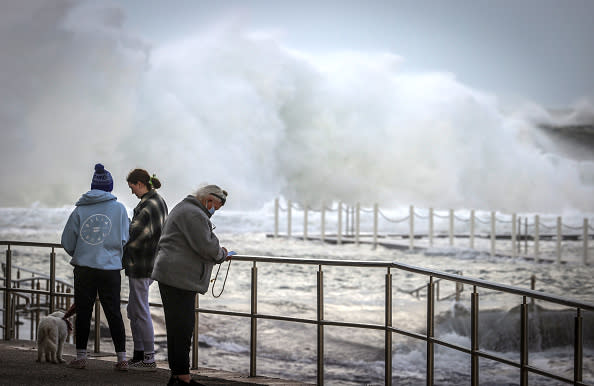
Will wearing a mask lower my risk of coronavirus infection?
Yes – but it must be done in conjunction with other measures, such as washing your hands thoroughly and social distancing.
“The use of a mask alone is insufficient to provide an adequate level of protection,” according to the World Health Organisation.
“Other personal and community level measures should also be adopted to suppress transmission of respiratory viruses.”
While some people have suggested wearing a mask provides people with a false sense of security, leading them to stop social distancing, research shows the opposite is true. An Italian experiment showed that wearing a mask actually makes people stay away from you.
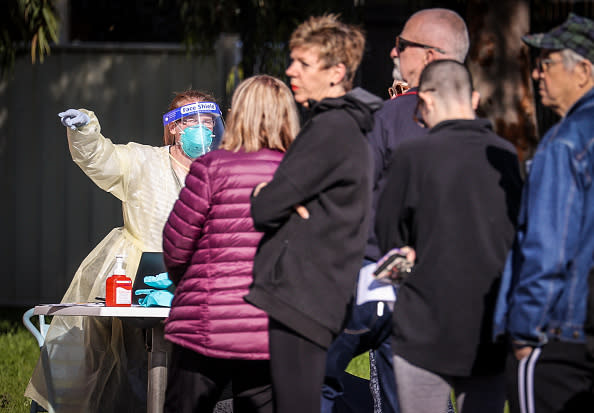
Will I be fined if I don’t wear a mask?
In Victoria if you live in metro Melbourne or Mitchell Shire and you’re out of your home, you can be fined $200 for failing to wear a mask.
This restriction will start from Wednesday at 11.59pm (local time).
What kind of face mask should I use?
Both cloth masks and single-use face masks (also known as surgical masks) are suitable for use by the general public to prevent the spread of COVID-19. Masks don’t need to be of true surgical quality to be effective.
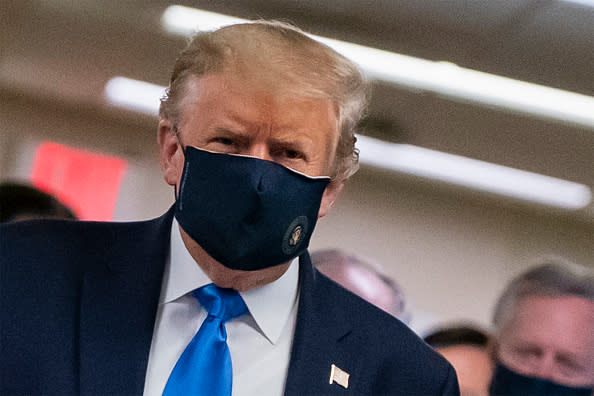
Single-use masks
Single-use masks are made up several layers of non-woven plastic and can effectively filter very small particles – including the droplets of COVID-19 – from the air. They usually have an external waterproof layer and an internal absorbent layer. Tests have shown single-use masks remove between 53 and 73 per cent of particles from the air.
The pros:
They are effective at filtering very small particles
The cons:
Some commercially made masks are low quality
They are not environmentally friendly
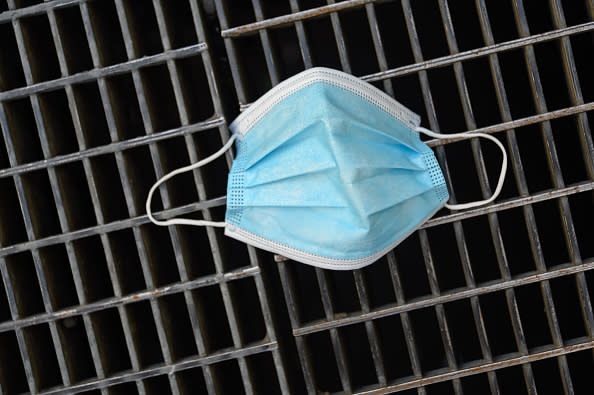
Cloth masks
To be effective, cloth masks should be made from three layers in a mix of breathable fabrics.
A report by Smart Air showed denim and canvas filtered more than 90 per cent of large particles and about 30 per cent of small particles from the air.
The pros:
They block some of the large droplets that could potentially be inhaled
They are more environmentally friendly than single-use masks
The cons:
They become wetter than surgical masks more quickly
They don’t filter out small particles like single-use masks
They need to be multi-layered to be effective
P2 and N95 masks
These are for surgical or healthcare use, and not recommended for the general public, as they can be tricky to put on and take off properly.
“If you are caring for someone who has laboratory-confirmed COVID-19, then an N95 mask would be advisable,” Professor Bruce Thompson, from the School of Health Sciences at Swinburne University, says.
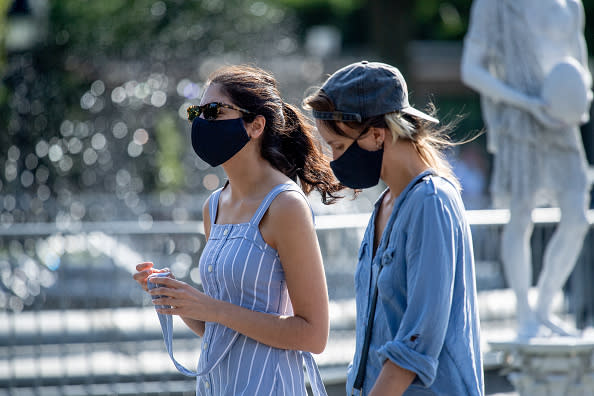
How should I wear a mask?
Your mask should:
Cover your nose and mouth comfortably
Fit snugly under your chin and around the top of your nose
Fit against the sides of your face
When wearing a mask, you shouldn’t:
Wear it if it is damaged or damp
Share it with anyone
Touch the front of it while you’re wearing it, as it will contaminate your hands

Will anything else make a mask more effective?
Research from Northeastern University in the US shows that putting nylon stocking material over the top of both cloth and single-use masks makes them more effective.
Tests showed that with the stocking on top, single-use masks filter about 90 per cent of small particles, compared with between 53 and 75 per cent with no stocking.
It also improved the filtering in cloth masks.
What should I do with my mask after wearing it?
Whichever type of mask you use, remember they should be single-use only, according to Prof Thompson.
“You cannot take a mask off, put it into your pocket to then reapply it again at a later time,” he says.
“You have to assume that if you’re wearing a mask, the outside of the mask is now infected. If you have the virus, then if you are wearing a mask, the inside of the mask is also infected.

“Therefore, you need to take off the mask without infecting your hands and also not allowing the mask to come in to contact with any surface apart from the rubbish bin that you put it in to.
“You then have to appropriately wash your hands or use hand sanitiser.”
Cloth masks should be put straight in the washing machine and washed with the warmest water appropriate for the fabric.
It’s fine to put them in with your other laundry. Make sure it is thoroughly dry before wearing it again.
Where can I buy face masks?
Most pharmacies stock single-use face masks, and many clothing brands, such as Bonds and Gorman, are now selling cloth masks both in-store and online.
Can I make my own mask?
Yes. If you make a mask out of the correct materials, it’s safe to wear a mask you’ve made yourself.
How do I make my own mask?
A cloth mask should consist of three layers: a water-resistant fabric for the outer layer (‘green’ shopping bags or exercise clothing work well), a fabric blend for the middle layer (any clothing is suitable), and a water-absorbing cotton (any clothing that feels soft against your face will work) for the layer that touches your face.
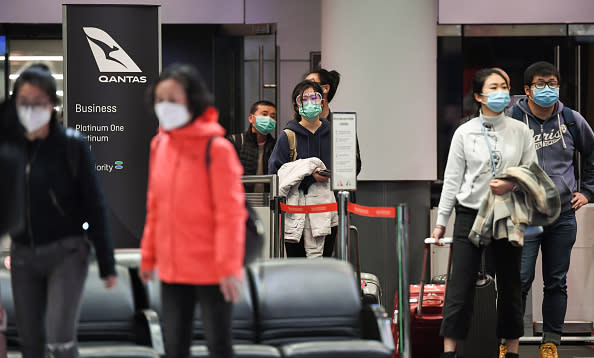
Each piece of fabric should be about 25cm by 25cm.
You’ll also need elastic or string for the ear loops.
Follow the Victorian government’s instructions on how to assemble your mask here.
Is wearing masks mandatory in other countries?
More than 50 countries have now made it compulsory for people to cover their faces when they are in public spaces.
In the UK and Germany, people must wear a face covering if they are travelling on public transport or going into shops.
However, it doesn’t have to be a mask – it can be a scarf wrapped round your face. If you don’t do this, you could be fined.
In some parts of China, you could be arrested for not wearing a mask and in Singapore it’s compulsory to wear one outside at all times.
While it is not yet a mandatory requirement in the US, the Centers for Disease Control and Prevention (CDC) has called for all Americans to wear masks to prevent the spread of the coronavirus.
“Cloth face coverings are one of the most powerful weapons we have to slow and stop the spread of the virus – particularly when used universally within a community setting,” CDC director Dr Robert R Redfield said.
“All Americans have a responsibility to protect themselves, their families, and their communities."
Do you have a story tip? Email: newsroomau@yahoonews.com.
You can also follow us on Facebook, Instagram and Twitter and download the Yahoo News app from the App Store or Google Play.





